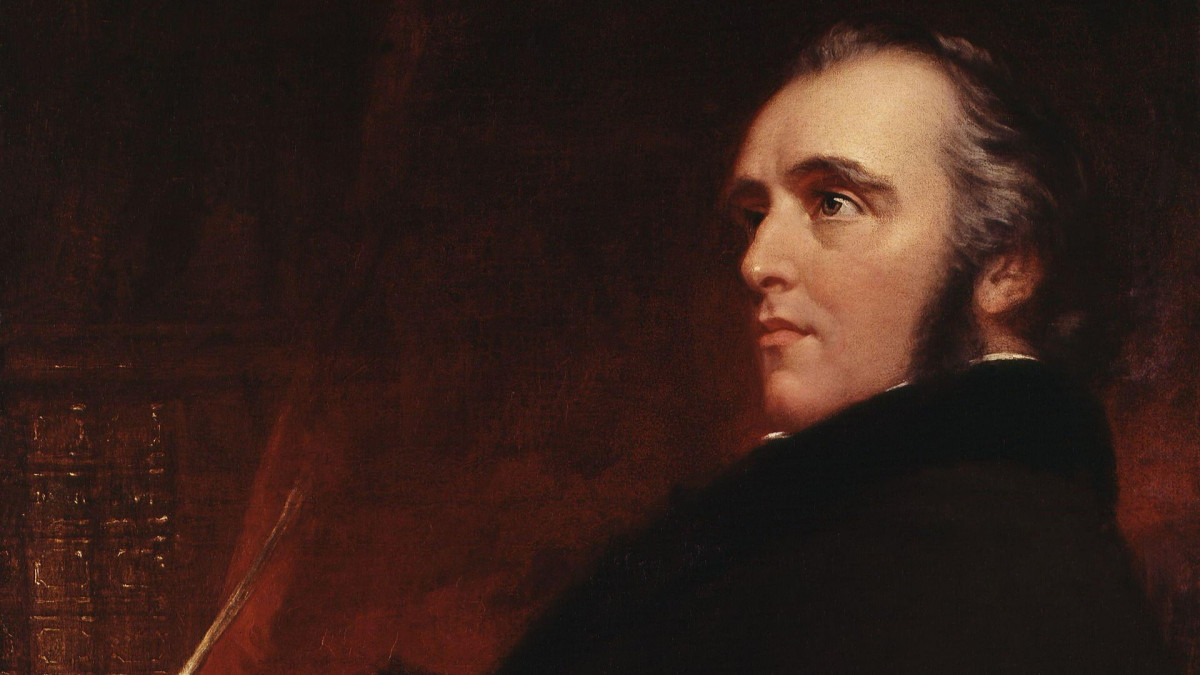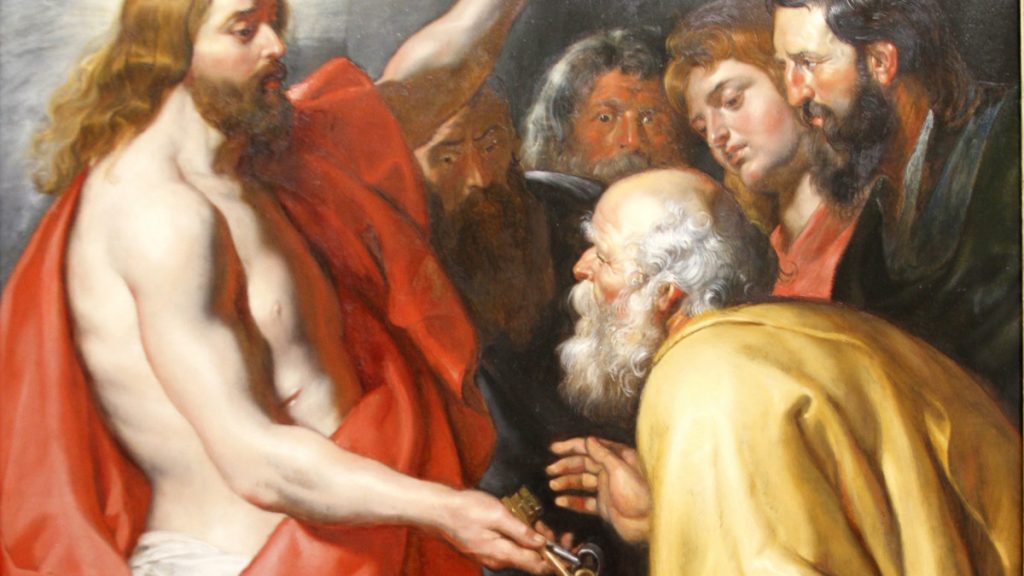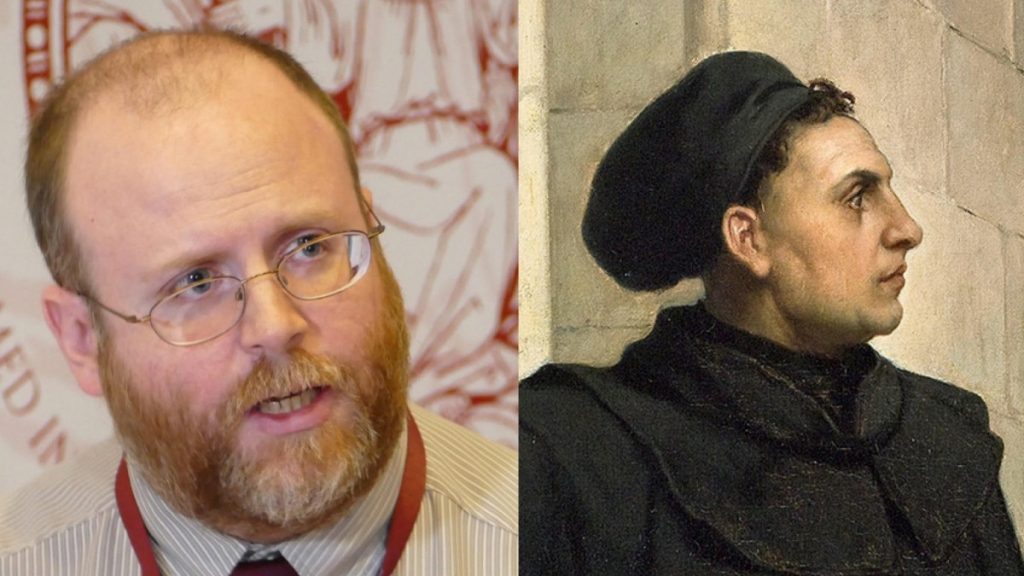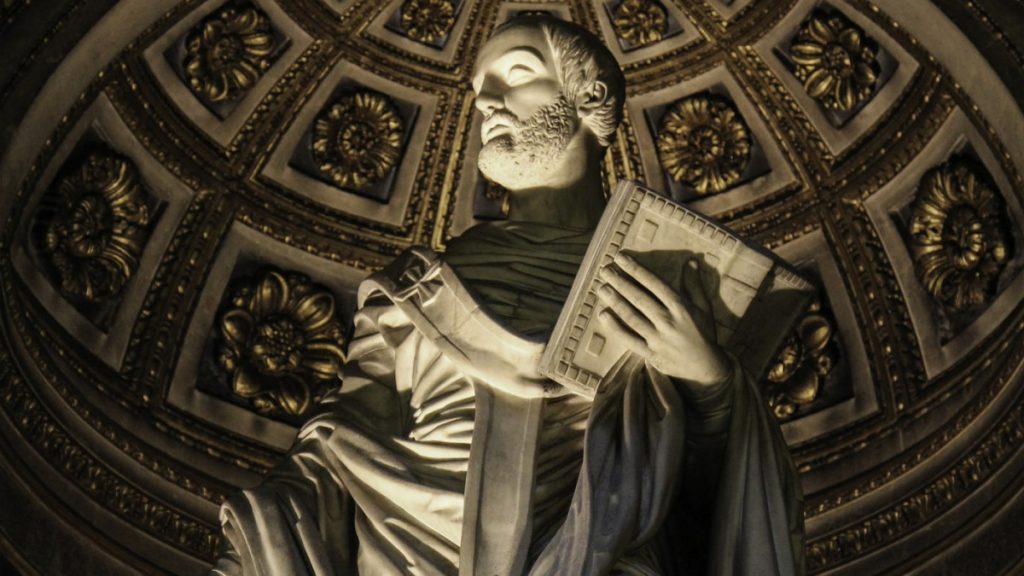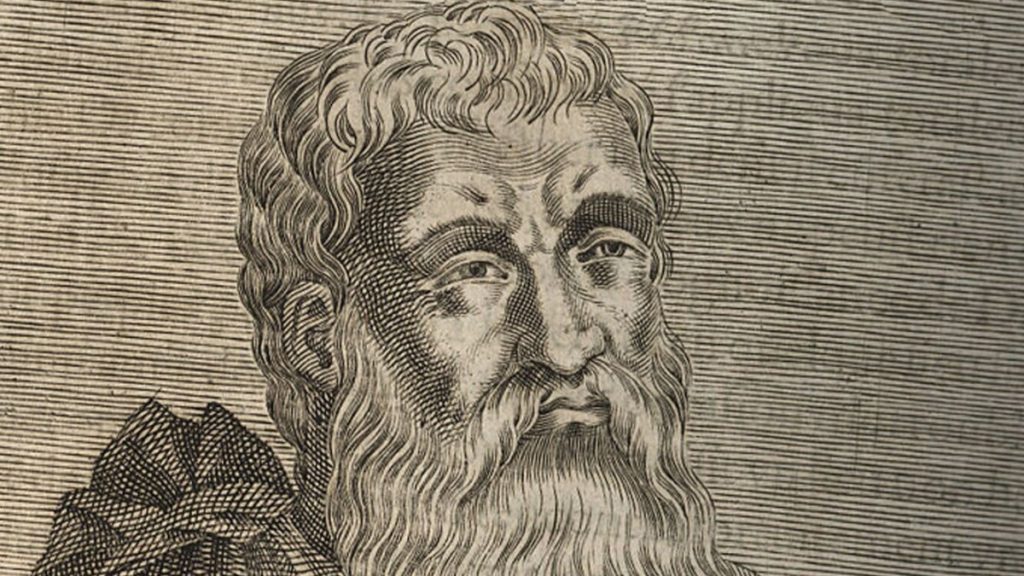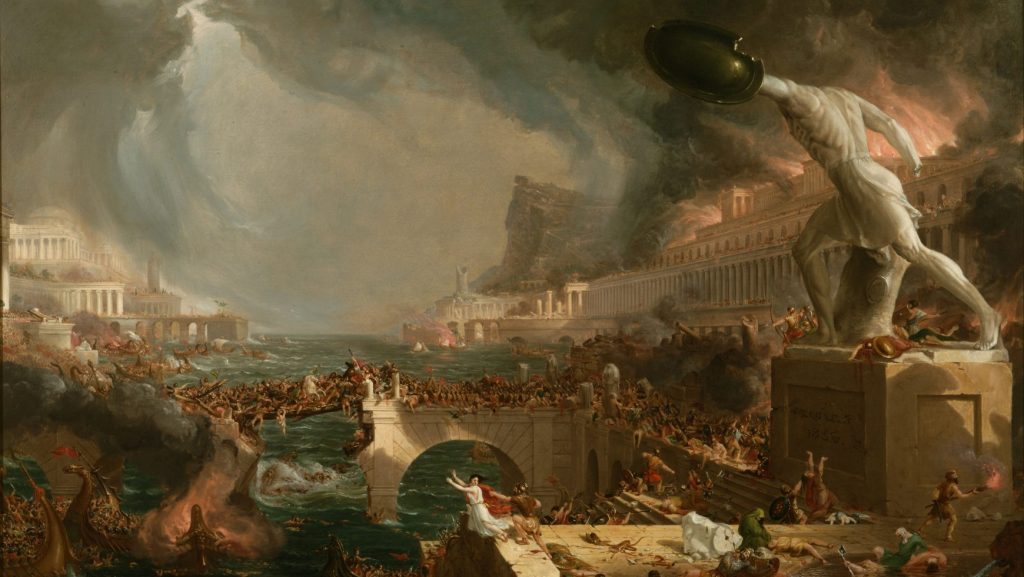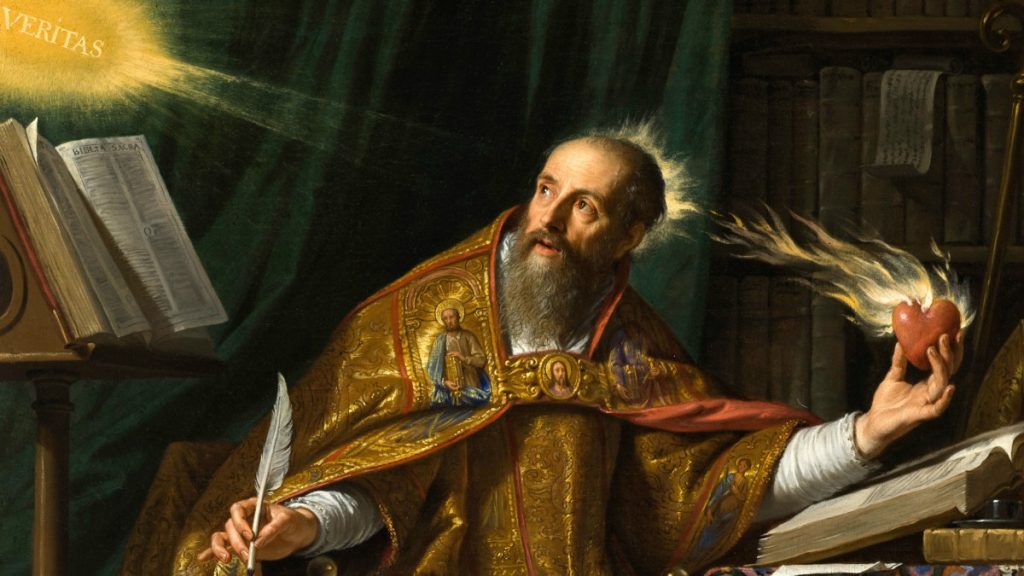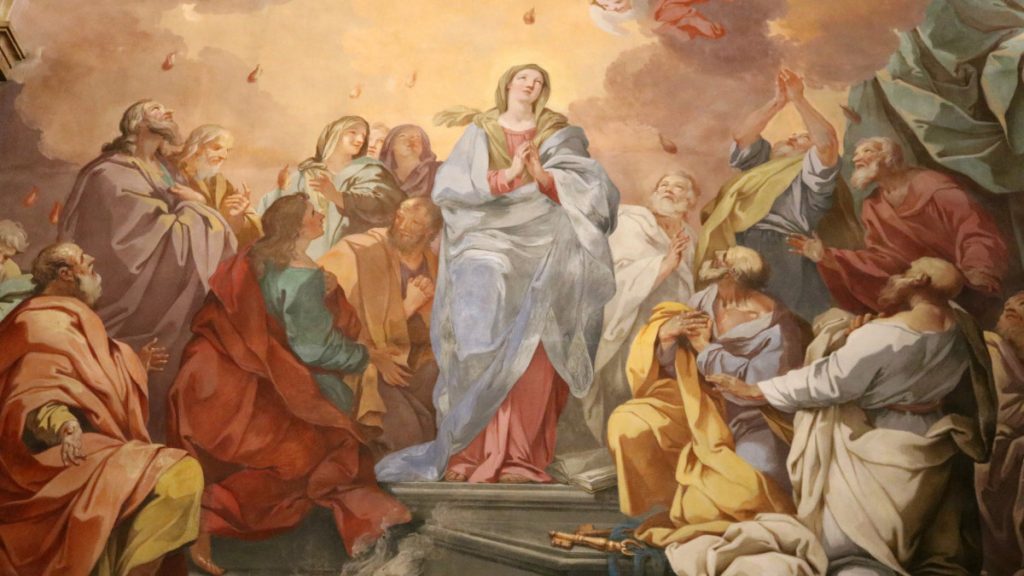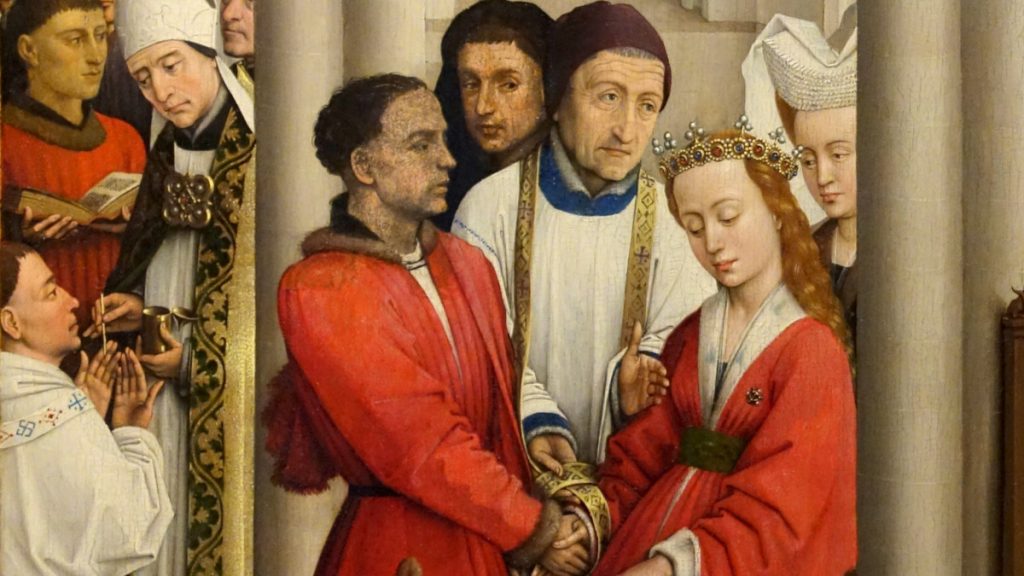Relevant Resources
- Quote Archive | The Papacy and the Invincibility of the Church
- Study Bank | The Ancient Lists and Testimonies of Popes Succeeding from Peter
Introduction
Thomas Babington Macaulay (1800-1859) was one of the great scholars and statesmen of Victorian England.
Like most of his countrymen in those days (and now), he was not Catholic. But in October, 1840, writing in The Edinburgh Review on a recent book on the history of the Popes, he had the most striking words to offer on the enduring nature of the papacy and the Catholic Church compared with every other institution in the world.
We share those words here merely to spur reflection. Is this fact of the papacy’s endurance a coincidence? Or is it rather the manifestation in history of Christ’s words to St. Peter that He would establish His Church on a rock—the very term by which he renamed the previously named Simon to Peter (“rock”)—and that the gates of hell would never prevail against it? (Matt. 16:18)
One is reminded of C.S. Lewis’s famous argument that Christ could only be Lord, liar, or lunatic. His claims were simply such that no other options were possible.
If those are the only options when it comes to Christ, it is no stretch to conclude the same would be true of His Church.
Roadmap
Our Roadmap is as follows:
- Our thesis is that the reflections of the Victorian era and non-Catholic historian, Thomas Babington Macaulay, accurately depict the reality of the papacy, and thereby provide good evidence that it was divinely established by Jesus Christ (a conclusion Macaulay does not himself state). We will show this by:
- First quoting Macaulay’s words about the papacy; then
- Summarizing the conclusions this very anti-Catholic protestant historian reached about the enduring reality of the papacy; then
- Offering our own conclusion about the only two options left to us if Macaulay’s observations are correct.
Macaulay: “The Papacy Remains”
Here are Macaulay’s words from his essay in The Edinburgh Review in October, 1840 entitled Ranke’s History of the Popes 1:
There is not, and there never was on this earth, a work of human policy so well deserving of examination as the Roman Catholic Church. The history of that Church joins together the two great ages of human civilization. No other institution is left standing which carries the mind back to the times when the smoke of sacrifice rose from the Pantheon, and when camelopards [giraffes] and tigers bounded in the Flavian amphitheater [the Colosseum]. The proudest royal houses are but of yesterday, when compared with the line of the Supreme Pontiffs.
That line we trace back in an unbroken series, from the Pope who crowned Napoleon in the nineteenth century to the Pope who crowned Pepin in the eighth; and far beyond the time of Pepin the august dynasty extends, till it is lost in the twilight of fable. The republic of Venice came next in antiquity. But the republic of Venice was modern when compared with the Papacy; and the republic of Venice is gone, and the Papacy remains.
The Papacy remains, not in decay, not a mere antique, but full of life and youthful vigor. The Catholic Church is still sending forth to the farthest ends of the world missionaries as zealous as those who landed in Kent with Augustin, and still confronting hostile kings with the same spirit with which she confronted Attila. The number of her children is greater than in any former age. Her acquisitions in the New World have more than compensated for what she has lost in the Old. Her spiritual ascendancy extends over the vast countries which lie between the plains of the Missouri and Cape Horn, countries which a century hence, may not improbably contain a population as large as that which now inhabits Europe.
The 2 | 3 members of her communion are certainly not fewer than a hundred and fifty millions; and it will be difficult to show that all other Christian sects united amount to a hundred and twenty millions. Nor do we see any sign which indicates that the term of her long dominion is approaching. She saw the commencement of all the governments and of all the ecclesiastical establishments that now exist in the world; and we feel no assurance that she is not destined to see the end of them all.
She was great and respected before the Saxon had set foot on Britain, before the Frank had passed the Rhine, when Grecian eloquence still flourished at Antioch, when idols were still worshiped in the temple of Mecca. And she may still exist in undiminished vigor when some traveler from New Zealand shall, in the midst of a vast solitude, take his stand on a broken arch of London Bridge to sketch the ruins of St. Paul’s… 3 | 8
The history of Catholicism strikingly illustrates these 8 | 9 observations [that “progress” has not led to protestant dominance, or the death of the Catholic Church]. During the last seven centuries the public mind of Europe has made constant progress in every department of secular knowledge. But in religion we can trace no constant progress. The ecclesiastical history of that long period is a history of movement to and fro. Four times, since the authority of the Church of Rome was established in Western Christendom, has the human intellect risen up against her yoke. Twice that Church remained completely victorious. Twice she came forth from the conflict bearing the marks of cruel wounds, but with the principle of life still strong within her. When we reflect on the tremendous assaults which she has survived, we find it difficult to conceive in what way she is to perish… 9 | 29
It is impossible to deny that the polity of the Church of Rome is the very masterpiece of human wisdom. In truth, nothing but such a polity could, against such assaults, have borne up such doctrines. The experience of twelve hundred eventful years, the ingenuity and patient care of forty generations of statesmen, have improved that polity to such perfection that, among the contrivances which have been devised for deceiving and oppressing mankind, it occupies the highest place. The 29 | 30 stronger our conviction that reason and Scripture were decidedly on the side of Protestantism, the greater is the reluctant admiration with which we regard that system of tactics against which reason and Scripture were employed in vain.
If we went at large into this most interesting subject, we should fill volumes… 30 | 43
The Arabs have a fable that the Great Pyramid was built by antediluvian [pre-Noah’s flood] kings, and alone, of all the works of men, bore the weight of the Flood. Such as this was the fate of the Papacy. It had been buried under the great inundation; but its deep foundations 43 | 44 had remained unshaken; and, when the waters abated, it appeared alone amidst the ruins of a world which had passed away. The republic of Holland was gone, and the empire of Germany, and the Great Council of Venice, and the old Helvetian League, and the House of Bourbon, and the parliaments and aristocracy of France. Europe was full of young creations, a French empire, a kingdom of Italy, a Confederation of the Rhine. Nor had the late events affected only territorial limits and political institutions. The distribution of property, and the composition and spirit of society, had, through great part of Catholic Europe, undergone a complete change. But the unchangeable Church was still there.
Conclusion
From Macaulay’s observations, we see that even this very anti-Catholic historian came to the following conclusions in his attempt to objectively analyze history:
- While ascribing it to “human policy” and “human wisdom,” he describes the institution of the papacy as the most enduring in history.
- The papacy is the institution that connects the modern world with ancient history.
- The papacy is far older than even the greatest royal houses of Europe.
- Despite its age, the papacy is not decrepit, but “full of life and youthful vigor.”
- The papacy was a great institution even prior to the rise of Islam, and before Saxons ever stepped foot in Britain.
- The papacy had surmounted so many shocks throughout history that Macaulay found it “difficult to conceive in what way she is to perish.”
- No appeals to “Scripture” or “reason” on the part of protestants and others had been able to defeat the papacy.
- Such was the papacy’s endurance that Macaulay called it “the unchangeable Church.”
These conclusions leave us with two possible options: either the papacy is a freak accident of history, continually defying the odds at civilizational scale for 2,000 years; or it was truly established by Christ, and thus the beneficiary of His promise that the gates of Hell would never prevail against His Church [Matt. 16:18].
